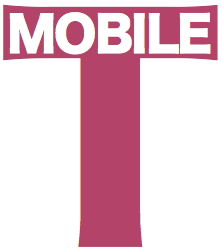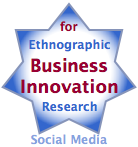 Why T-Mobile Needs a Chief Customer Officer shows how customers’ omni-channel interactions with enterprises demand profound integration of business processes, and how firms’ failure to “go all the way” in breaking down silos ultimately threatens business. Most firms don’t go far enough, including T-Mobile, and their silo-centric efforts fail to get the job done. To illustrate the point, I’ll share how T-Mobile alienates fans like me by not delivering what they promise. Why T-Mobile Needs a Chief Customer Officer shows how customers’ omni-channel interactions with enterprises demand profound integration of business processes, and how firms’ failure to “go all the way” in breaking down silos ultimately threatens business. Most firms don’t go far enough, including T-Mobile, and their silo-centric efforts fail to get the job done. To illustrate the point, I’ll share how T-Mobile alienates fans like me by not delivering what they promise.
This story also shows that the need for a CCO is particularly acute in mature economies like the U.S.A. and Europe because their silos were built decades ago, and their legacy processes often adversely affect customer experience.
[…]
 Ethnographic research for business innovation shows how to apply ethnographic research of social media to managing controlled disruption within organizations. Ethnographic research of social media can transform the entire innovation process because it’s a very efficient way to study the behavior and motivations of the people that the innovation proposes to serve. Unlike traditional innovation and ethnographic research methods, which are relatively slow, costly and qualitative, ethnographic research of social media combines qualitative richness with quantitative analysis. It’s faster and less costly, too. Ethnographic research for business innovation shows how to apply ethnographic research of social media to managing controlled disruption within organizations. Ethnographic research of social media can transform the entire innovation process because it’s a very efficient way to study the behavior and motivations of the people that the innovation proposes to serve. Unlike traditional innovation and ethnographic research methods, which are relatively slow, costly and qualitative, ethnographic research of social media combines qualitative richness with quantitative analysis. It’s faster and less costly, too.
Ethnographic research for business innovation can dramatically improve the depth and breadth of business and corporate strategy, business design and service design research since it allows teams to consider more users and to assess their behavior and motivations, which can improve the value of more costly research.
This post outlines the business innovation use case of ethnographic research of social media, and it includes examples in banking, professional services, consumer products, and B2B marketing. For more on ethnographic research, see More Resources below.
[…]
 Hightech and U.S. Healthcare Transformation recaps The Future of Healthcare: How Technology is Enabling New Models of Healthcare Delivery, which was cosponsored by Katten Muchin Rosenmann and the Illinois Technology Association. The seminar featured five panelists with various points of view: two CEOs of healthcare start-ups, one venture capitalist, one healthcare management consultant and a healthcare attorney. Hightech and U.S. Healthcare Transformation recaps The Future of Healthcare: How Technology is Enabling New Models of Healthcare Delivery, which was cosponsored by Katten Muchin Rosenmann and the Illinois Technology Association. The seminar featured five panelists with various points of view: two CEOs of healthcare start-ups, one venture capitalist, one healthcare management consultant and a healthcare attorney.
The consensus was that, at long last, U.S. healthcare is going to progress beyond the waiting room; a perfect storm of market forces and technology enablement has created the conditions for significant reform. Regulations are balancing privacy, protections and digitization, and start-ups are attacking pockets of inefficiency, often through mobile applications and cloud solutions. Technology empowers patients and providers because information is increasingly available real-time. Information enables patients to be more aware of their health as well as the ramifications of their decisions, and it can improve collaboration between provider and patient.
Government is a major change agent; the U.S. taxpayer is footing a higher and higher bill, and healthcare has absorbed all wage gains for many years now, effectively preventing Americans from improving their quality of life. Read on for my […]
|
|
 Why T-Mobile Needs a Chief Customer Officer shows how customers’ omni-channel interactions with enterprises demand profound integration of business processes, and how firms’ failure to “go all the way” in breaking down silos ultimately threatens business. Most firms don’t go far enough, including T-Mobile, and their silo-centric efforts fail to get the job done. To illustrate the point, I’ll share how T-Mobile alienates fans like me by not delivering what they promise.
Why T-Mobile Needs a Chief Customer Officer shows how customers’ omni-channel interactions with enterprises demand profound integration of business processes, and how firms’ failure to “go all the way” in breaking down silos ultimately threatens business. Most firms don’t go far enough, including T-Mobile, and their silo-centric efforts fail to get the job done. To illustrate the point, I’ll share how T-Mobile alienates fans like me by not delivering what they promise.
 Ethnographic research for business innovation shows how to apply ethnographic research of social media to managing controlled disruption within organizations. Ethnographic research of social media can transform the entire innovation process because it’s a very efficient way to study the behavior and motivations of the people that the innovation proposes to serve. Unlike traditional innovation and ethnographic research methods, which are relatively slow, costly and qualitative, ethnographic research of social media combines qualitative richness with quantitative analysis. It’s faster and less costly, too.
Ethnographic research for business innovation shows how to apply ethnographic research of social media to managing controlled disruption within organizations. Ethnographic research of social media can transform the entire innovation process because it’s a very efficient way to study the behavior and motivations of the people that the innovation proposes to serve. Unlike traditional innovation and ethnographic research methods, which are relatively slow, costly and qualitative, ethnographic research of social media combines qualitative richness with quantitative analysis. It’s faster and less costly, too. Hightech and U.S. Healthcare Transformation recaps The Future of Healthcare: How Technology is Enabling New Models of Healthcare Delivery, which was cosponsored by Katten Muchin Rosenmann and the Illinois Technology Association. The seminar featured five panelists with various points of view: two CEOs of healthcare start-ups, one venture capitalist, one healthcare management consultant and a healthcare attorney.
Hightech and U.S. Healthcare Transformation recaps The Future of Healthcare: How Technology is Enabling New Models of Healthcare Delivery, which was cosponsored by Katten Muchin Rosenmann and the Illinois Technology Association. The seminar featured five panelists with various points of view: two CEOs of healthcare start-ups, one venture capitalist, one healthcare management consultant and a healthcare attorney.